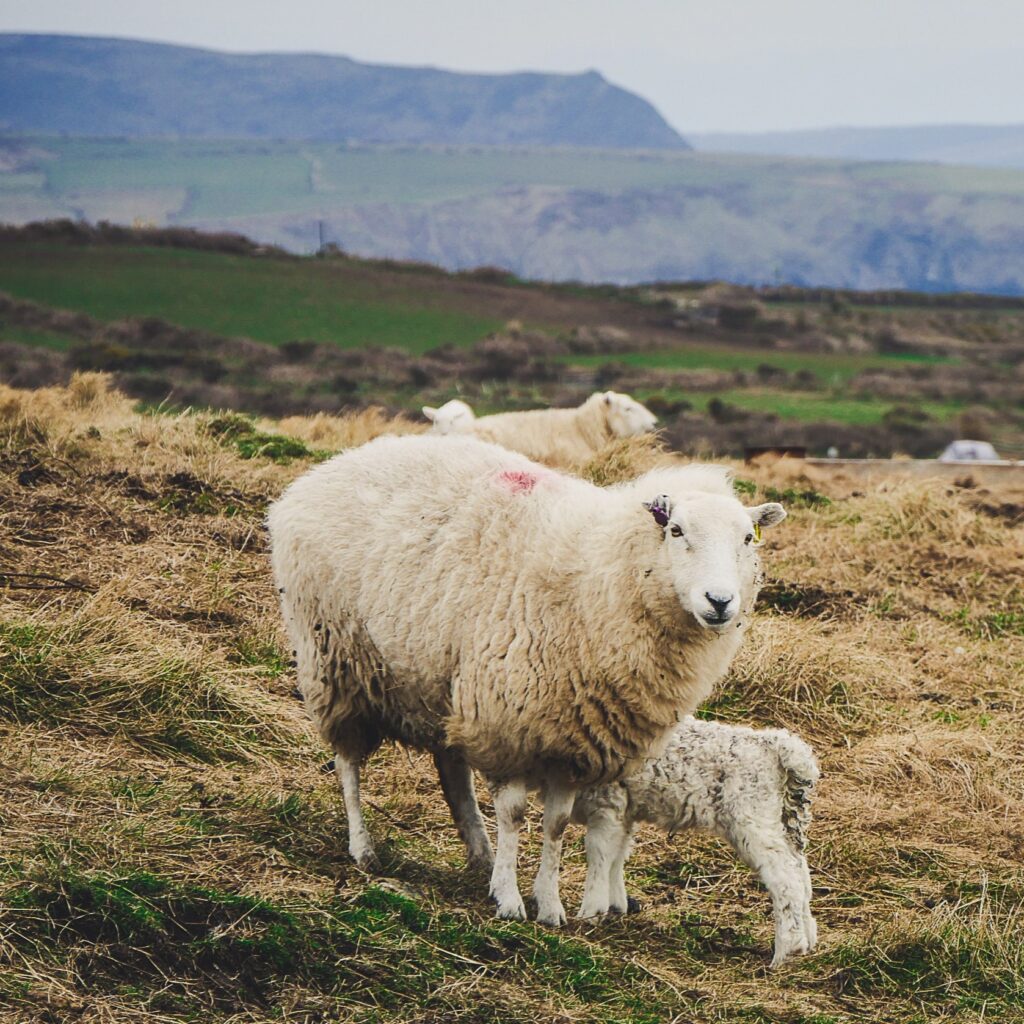As mentioned in the wool section, conventional wool is sometimes far from being as eco-friendly as we would expect.
However, wool is a natural and biodegradable fibre with some great qualities. When its production and sheep farming is well managed, it can be a great sustainable option to dress warmly.
According to a report from 2021, “it’s estimated more than 10 million lambs continue to be mulesed annually.” Hence, responsible wool needs to be mulesing-free, so there are no painful procedures involved.
Furthermore, for wool to be considered responsible, no pesticides or parasiticides should be used on the pastureland or the sheep themselves, and good cultural and management practices of livestock should be used.
Responsible and organic wool belongs to SANE Approved Material List. SANE recognizes the certifications Responsible Wool Standard (RWS), GOTS, and OCS, which ensures that farms use best practices to protect the land and treat the animal decently.
For responsible or organic wool not previously certified RWS, GOTS, or OCS, the material production will need to be certified SANE by a SANE-accredited certifier.
A product made of at least 90% responsible or organic wool (or blended with other SANE Approved Material) and produced in a facility holding a SANE Scope Certificate is eligible to be certified SANE.
Copy partner: Sustain Your Style; Picture: Adrian Dorobantu
Other sources: Four Paws, 2021. Progress towards a non-mulesed future and better sheep welfare in Australia; Jessica McDonald, How Potent is Methane, 2018
